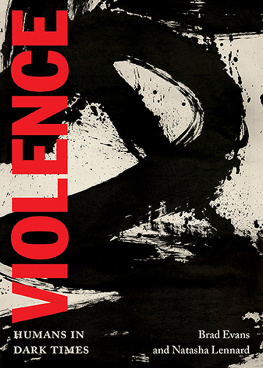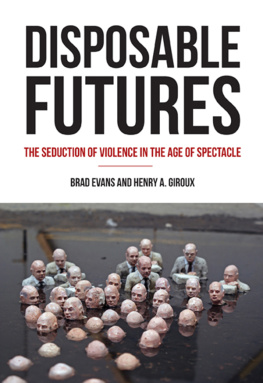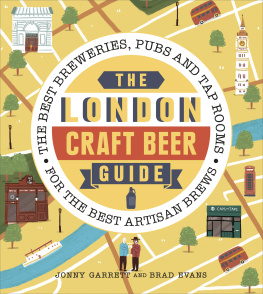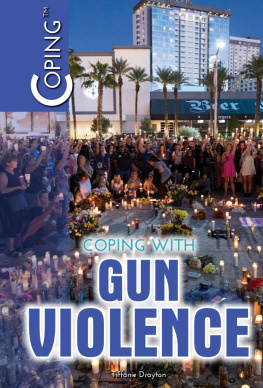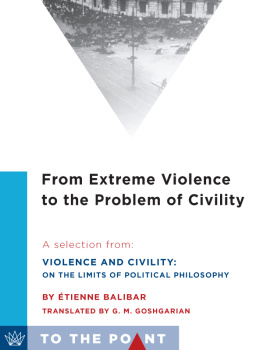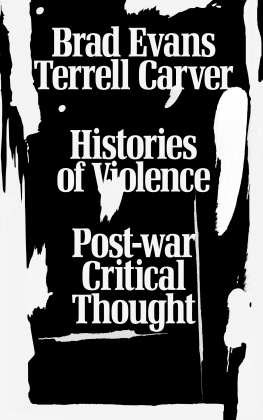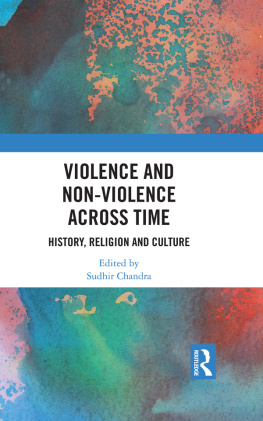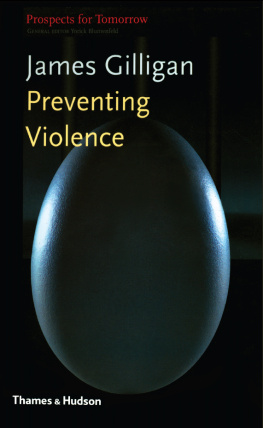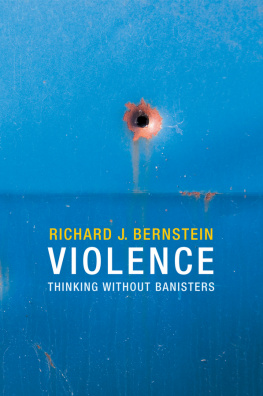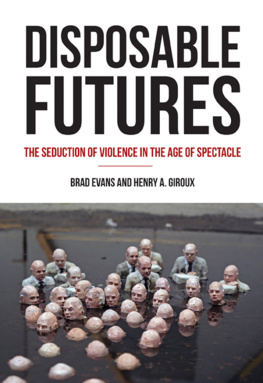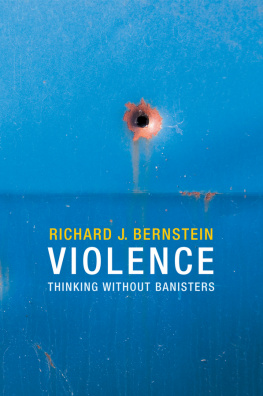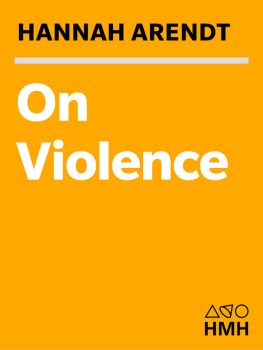VIOLENCE
Humans in Dark Times
Brad Evans & Natasha Lennard

PRAISE FOR VIOLENCE: HUMANS IN DARK TIMES
Many of us live today with a pervasive sense of unease, worried that our own safety is at risk, or that of our loved ones, or that of people whose bad circumstances appear to us through networked media. Violence feels ever-present. Natasha Lennard and Brad Evans help us to analyze those feelings, talking with a wide range of thinkers in order to gain insight into the worst of what humans do, and challenging us to imagine a world in which violence is no longer a given. Their book is full of surprising insights and intelligent compassion.
Sarah Leonard, co-editor of The Future We Want: Radical Ideas for the New Century
In Violence, Brad Evans and Natasha Lennard have created, alongside their interview subjects, a kaleidoscopic exploration of the concept of violence, in terrains expected and not, in prose taut and unexpectedly gorgeous. Their philosophical rigor provides the reader with an intellectual arsenal against the violence of the current moment.
Molly Crabapple, author of Drawing Blood
This is a book that will make everyone feel clever. Reflections on violence, both actual, and the possibility of, mediating so much of social interaction, also makes for critical reading. The range of interviews with leading academics, to filmmakers and artists, is impressive, at once immediate and relevant, but also profoundly philosophical. More essentially, though, the conversations underline the need and suggest ways to resist and organize in a visionary way, in the extraordinary times we live in.
Razia Iqbal, BBC News
Standing on their own, the interview subjects featured in Violence: Humans In Dark Times might be identified as the foremost intellectuals, artists, and activists engaged with questions of how violence moves, acts, and is witnessed in the world. But summoned together in this collection by two political thinkers distinguished by both their unmatched intellects and their willingness to deploy those intellects in acts of service rather than performance, their voices materialize as a creative space large and fertile enough to lay the groundwork for an actionable hope. The result is a groundbreaking testament to the vital role of the abstract and the theoretical for understanding the depth to which violence is entrenched in human experience and consciousness and to the necessity of empathetic intellectual stewards like Lennard and Evans to direct such understanding into transformative action. We would be wise to read this collection with a similar eye toward service, and in so doing, open ourselves up to the rare mercy of no longer having to stand on our own.
Alana Massey, author of All The Lives I Want
ACKNOWLEDGMENTS
This anthology is the outcome of many enriching and challenging conversations with inspiring critical thinkers, artists, and cultural producers. We remain humbled by the opportunity to have discussed these pressing issues in such respectful and stimulating company. None of this, however, would have been possible were it not for the initial foresight of Peter Catapano and Simon Critchley of the New York Times forum The Stone. It is our hope that we repaid their initial belief in this project. We are also extremely thankful to Taylor Adams for his meticulous editing and patience, Tom Lutz, Boris Dralyuk, and Cord Brooks from the Los Angeles Review of Books, whose support and contributions have also been integral to the development of these timely yet tragically timeless conversations, along with City Lights for its dedication to the radical voice. It has been a pleasure to work with these committed people.
Brad Evans would also like to acknowledge all the support of friends, family, and colleagues (who are too numerous to mention here). You know who you are! He is continually amazed by the spirit of his beautiful daughter Amelie, and he cherishes every moment they share together. And most of all, he is thankful every single day for the love and support of Chantal Meza. She has encouraged him to see the world for all its beauty and pain, and has made him realize the true meaning of home.
We dont like to speak about debt because that is a form of violence itself. We are, however, thankful and grateful for those who engage in this ongoing fight for justice, dignity, and a world where nobody is disposable.
ABOUT BRAD EVANS AND NATASHA LENNARD
Brad Evans is a political philosopher, critical theorist, and writer, whose work specializes on the problem of violence. The author of many books, edited volumes, and articles, he serves as Professor of Political Violence and Aesthetics at the University of Bath, UK. He is currently the lead editor for a dedicated section on violence, arts, and critical theory with The Los Angeles Review of Books. He is also founder and director of the Histories of Violence Project: www.historiesofviolence.com
Brads books have received prestigious international awards and have been translated into many languages, including Spanish, Turkish, Korean and German. His latest books include Histories of Violence: Post-War Critical Thought (with Terrell Carver); Portraits of Violence: An Illustrated History of Radical Thinking (with Sean Michael Wilson) Disposable Futures: The Seduction of Violence in the Age of the Spectacle (with Henry Giroux), Resilient Life: The Art of Living Dangerously (with Julian Reid), Liberal Terror, and Deleuze & Fascism: Security: War: Aesthetics (with Julian Reid). Brads web site: www.brad-evans.co.uk.
Natasha Lennard is a journalist, essayist and columnist. She is a contributing writer for The Intercept and her work has appeared regularly in The Nation, Esquire, The New York Times, and The New Inquiry, among others. She teaches critical journalism at the New School For Social Research in New York. She is author of Being Numerous: Essays on Non-Fascist Life.
ONE
THINKING AGAINST VIOLENCE
We are immersed in a relentless stream of real and virtual violence. How can we break the cycle?
Natasha Lennard interviews Brad Evans
December 16, 2015
Brad Evans is a political philosopher, critical theorist, and writer whose work specializes on the problem of violence. The author of ten books and edited volumes, and over fifty articles, he serves as a Reader in Political Violence at the School of Sociology, Politics and International Studies, the University of Bristol, UK. He is the founder and director of the Histories of Violence Project.
Natasha Lennard:The premise of your book Disposable Futures is that violence is ubiquitous in the media today. There seems to be plenty of evidence to support this claimjust look at the home page of this news site for a start. But the media has always been interested in violenceif it bleeds, it leads isnt exactly new. And the notion that there is just more violence in the world todaymore violent material for the media to coverdoesnt seem tenable. So what do you think is specific about the ubiquity of violence today, and the way it is mediated?
Brad Evans: It is certainly right to suggest the connections between violence and media communications have been a recurring feature of human relations. We only need to open the first pages of Aeschyluss Oresteia to witness tales of victory in battle and its communicative strategieson this occasion the medium of communication was the burning beacon. But there are a number of ways in which violence is different today, in terms of its logics intended, forced witnessing, and ubiquitous nature.

